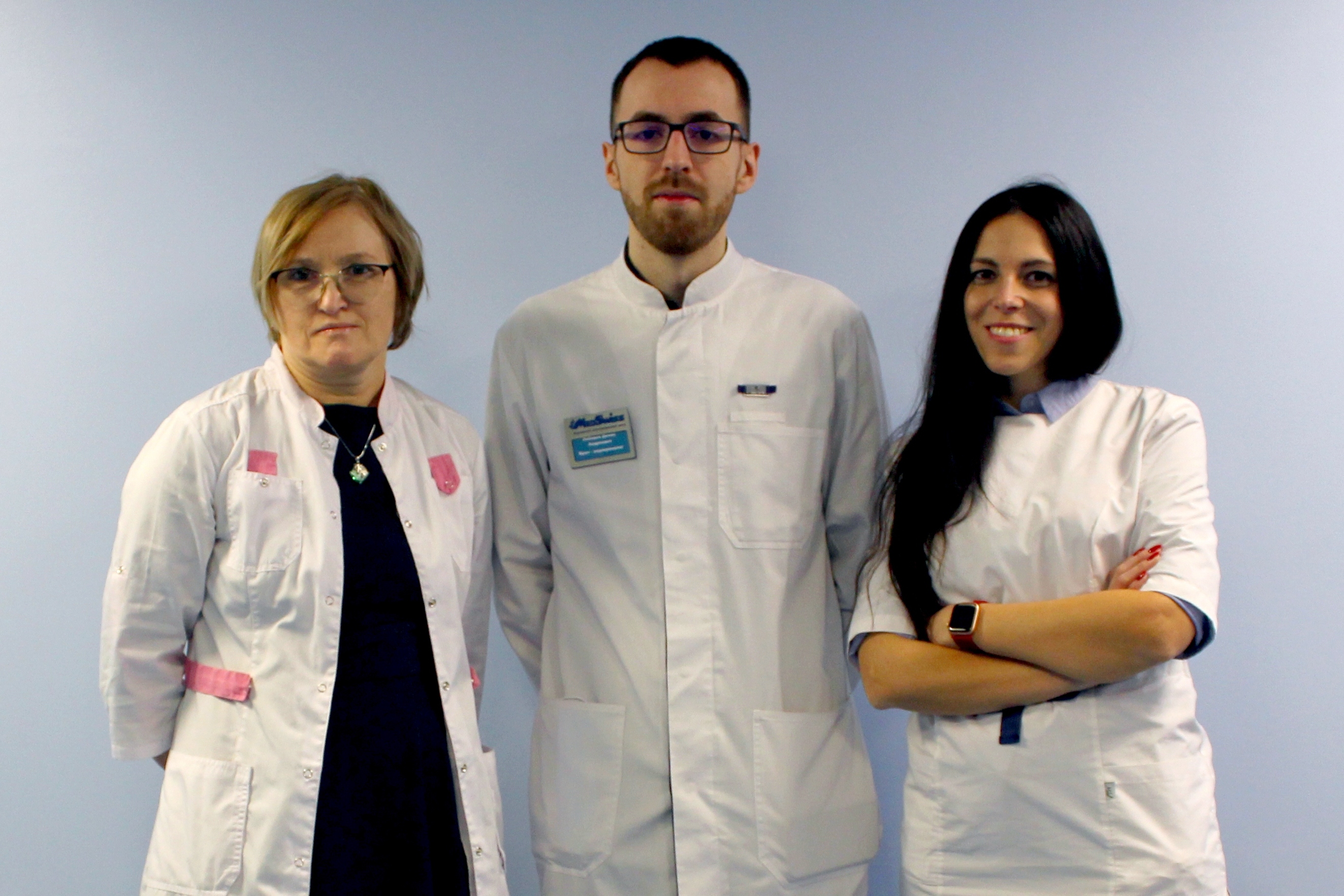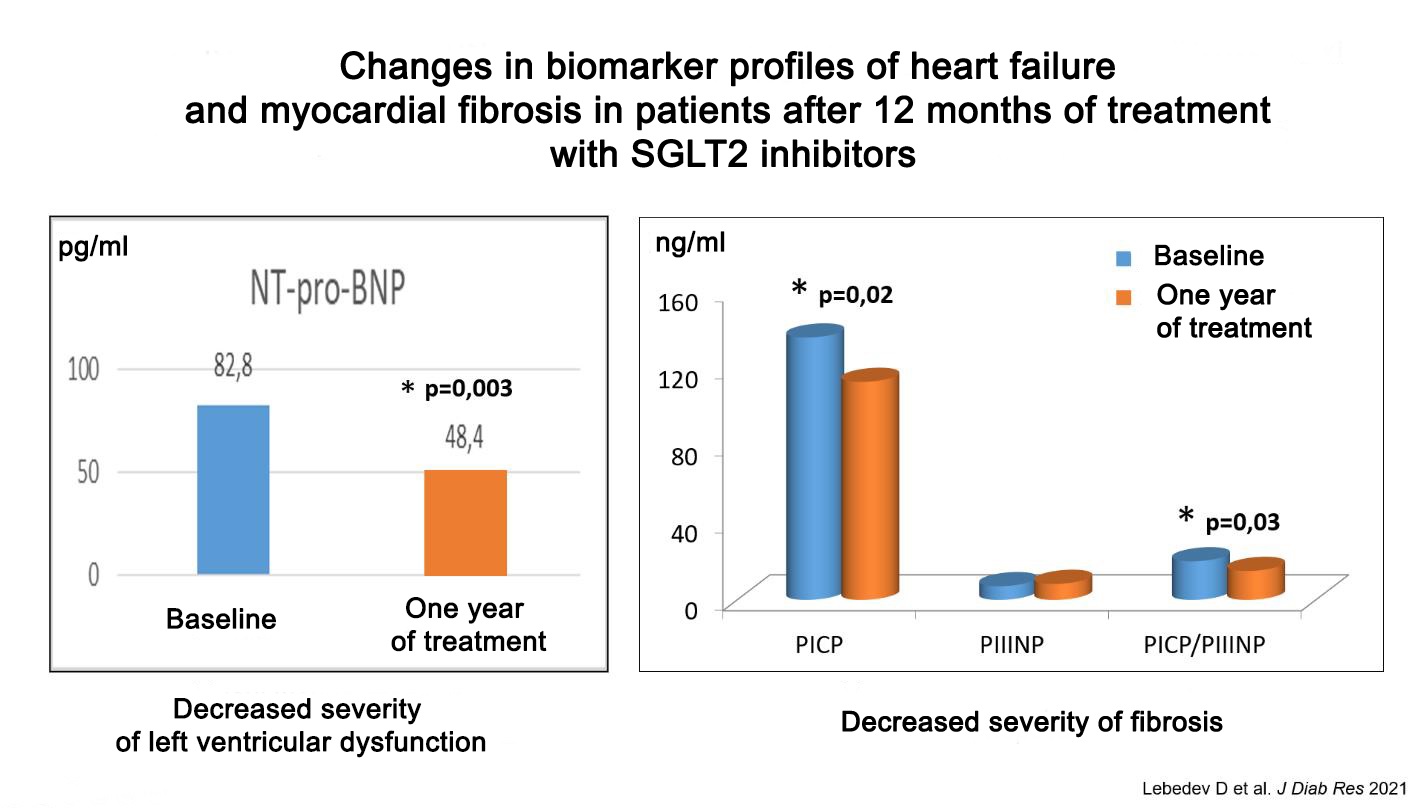
As part of the work under the grant of the Russian Ministry of Education and Science «Development of new neuromodulation technologies for heart failure prevention and treatment», researchers have found that in patients at high risk of developing heart failure (type 2 diabetes), fibrosis activity and severity of load on the myocardium are directly related to the onset of its symptoms and are suppressed by sodium-glucose cotransporter 2 inhibitors (SGLT2i), or gliflozins.

Another studied group of patients at high risk of heart failure were patients with resistant arterial hypertension. It has been established that its treatment by renal denervation does not affect the activity of the renin-angiotensin system and adds to an increase in markers of damage to the renal function during the first year after the procedure.
These studies demonstrate that the potential for managing cardiac remodeling processes in patients without heart failure may be associated with both the use of gliflozin and the implementation of nephroprotective strategies in renal denervation.
